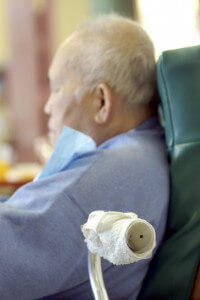Start-up and small businesses are the life-blood of our struggling economy in Atlanta and nationwide. Whether financed through sweat equity or angel investors, it is easy to bump into someone pursuing their dream of owning a business. Often, that dream involves a partnership with someone who shares the same vision of small business ownership.
While there are many upsides to start-ups (in some cases millions of them), there are always considerable risks. Risk taking can be healthy when it comes to starting a business adventure in Atlanta. Growth and achievement do not happen without risk. However, it is important to be proactive in planning for and mitigating risks at the beginning. No one should start a business venture with someone else, even a family member, without a written agreement about how to handle future disputes and problems without destroying the business.
While an idea may grow into a business plan, and that initial shared dream may spring from friendship (or family ties), business partnerships often turn ugly. When partnerships are formed, there must be shared vision of what the overall direction of the business is and how to get there. Equally important, should a disagreement or business failure occur in the future, it is important to have built-in options for partners before the problem develops.
 Take Domino’s Pizza for instance. In 1960 Thomas (Tom) Monaghan and his brother James borrowed $900 to purchase a pizza store. In 1961 James decided to trade his half of the business for a Volkswagon Beetle. Perhaps at the time this seemed like a wise move. However, after Tom Monaghan steered Domino’s into a household name, in 1998 he chose to retire and sold the company for $1 billion. Probably the worst investment decision James ever made was taking a Volkswagon Beetle for his stake in a business that would eventually be worth half a billion dollars!
Take Domino’s Pizza for instance. In 1960 Thomas (Tom) Monaghan and his brother James borrowed $900 to purchase a pizza store. In 1961 James decided to trade his half of the business for a Volkswagon Beetle. Perhaps at the time this seemed like a wise move. However, after Tom Monaghan steered Domino’s into a household name, in 1998 he chose to retire and sold the company for $1 billion. Probably the worst investment decision James ever made was taking a Volkswagon Beetle for his stake in a business that would eventually be worth half a billion dollars!
While the Monaghan brothers didn’t have a family feud over money, one can easily see how it could happen. To avoid major financial and legal headaches, proper documentation must be planned and signed in advance of a business divorce, business dissolution, or business break-ups. Surely, all partners would want to make sure that they are fairly compensated for their time, sweat equity and capital investments, that their legal rights and obligations are clearly defined, and if necessary that the assets of a business are fairly divided.
With over 20 years of experience handling business litigation cases in Atlanta, the Atlanta business dispute attorneys at Brownstein & Nguyen are more than qualified to handle your situation. Brownstein & Nguyen offers their experience and expertise with all business law cases. Contact our law offices today for a consultation regarding your business problem or needs.









